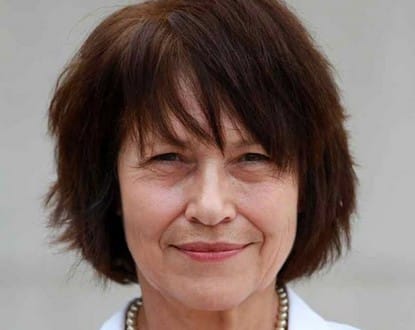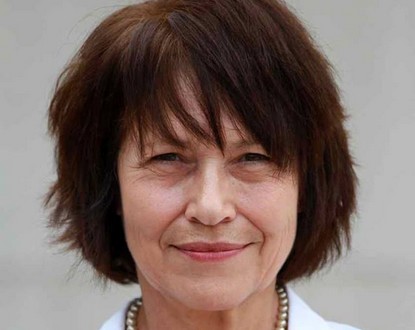An experienced activist and political leader, Dominique Boy-Mottard, along with her husband Patrick, leads the citizen collective Gauche Autrement, which is particularly active in the northern neighborhoods of the city.

We asked her to express herself ahead of tomorrow’s political return with the first City Council meeting after the holidays.
Nice Premium: What are the main themes for this autumn?
Dominique Boy-Mottard: Beyond the general issues that are priorities for our city, this time of the year prompts us to focus on the school return, especially, as has been the case, when it experiences confusion. After the debates – which should have been concluded earlier – on the issue of school schedules, it is high time to address the content of the activities offered. In this regard, the failures have been severe, penalizing children, parents, and teachers, and must still be overcome.
In terms of development, it is certain that the future of the Ray Stadium grounds remains shrouded in uncertainty: the least we can say is that the mayor remains very vague on this issue.
Finally, more broadly, I hope that this return marks the beginning of a rebalancing of the municipality’s resources in terms of security and cleanliness between the hyper-center and the rest of the city, and I am determined to work towards this.
NP: After the municipal elections last March, the national political context has changed significantly. Do you think it will influence local political life?
DBM: The national political context always, at least in part, influences local political life. Simply because the economic and social situation affects all regions of our country, and the political responses provided impact the entire national territory.
However, the political choices we can make locally retain their specificity due to the proximity they imply. This is why people of good will can come together beyond partisan divides, in the interest of the residents of our city. And I must say that the particularly heavy climate of this return should lead us to have an even more pronounced sense of responsibility than usual.
NP: This Sunday, there will be an election for the renewal of the senatorial representation of the A-M. You yourself are a candidate on the list led by Marc Daunis. What is your prediction? Will the Republican left succeed in keeping its only national representative?
DBM: I won’t venture to make predictions. One might think it’s quite simple because the electoral body is limited: only the grand electors vote, meaning the elected officials (as well as the additional delegates designated from the municipal councillors of the department’s largest cities), and the election is proportional.
But in fact, there are more uncertainties than one might imagine. In small towns, there are many unaffiliated elected officials whose leanings are uncertain. Personal relationships, whether good or bad, that the candidates maintain with other elected electors also play a role: in the secrecy of the voting booth, anything is possible… Otherwise, Marc Daunis would never have been elected in the previous election! I can only hope for the same outcome this time, even if, on paper, the situation is even more delicate for us. Because otherwise, the left would no longer have any parliamentarian to represent it among the 14 that our department has (9 deputies and 5 senators), and that would be very bad news for democracy.
NP: How do you assess the activity of the Mayor of Nice? What mistakes and shortcomings do you reproach him the most? And what are your proposals that you consider priorities?
DBM:The Mayor of Nice is intelligent and has great working capabilities. I believe his main flaw, as mayor, is not having a true vision for our city. He does many things (perhaps less than one might imagine because, in fact, he communicates a lot), but I find it hard to see coherence in everything he launches (which sometimes remains as mere announcements without follow-through).
I acknowledge he has a few impressive achievements to his credit, but they are primarily concentrated in the city center. Furthermore, he has a policy decidedly oriented towards events. This is understandable as Nice is a tourist city, but not all neighborhoods and residents benefit equally, and some sometimes feel a bit forgotten. Nonetheless, I believe he knows how to listen (he sometimes adopts proposals even when they come from the opposition), but he sometimes takes stances that give him a sectarian image. I regret this because I am not convinced it always reflects reality.
The crisis that our country, like many others, is experiencing further weakens the least favored populations. Contrary to popular belief about the Côte d’Azur, a large part of the Nice population has extremely low incomes, which is even more shocking given that a minority of residents has very substantial resources. In times of crisis, public authorities have fewer resources than usual, which forces them to make choices: it is evident that in Nice, the choice hasn’t always been one of solidarity… Achievements, as beautiful as they are, should not be judged in absolute terms: one might think it’s a good idea to have the tram line 2 go underground, but since it costs the city a lot of money (funded, let’s not forget, by our taxes), one must consider what could have been done instead with this enormous investment and if, ultimately, it might have been better for our citizens.
The priority of priorities is probably housing. It is not easy in a city that does not have unlimited land and where prices are very high. But the challenge must be met for all categories of the population: young or old, active or not. Efforts are being made, I admit, but they are still very insufficient.
Moreover, I would like our city to have a more ambitious policy focused on the development of its University. Nice is not really a university city even though it can be proud of the reputation of certain departments. Promoting the University means resolutely looking towards the future and caring for the youth.
NP: You are part of a fragmented municipal opposition in four groups. Do you think that coordination between these groups, beyond political divides, could make their actions more effective?
DBM: It’s not because there are several groups in the opposition that they must work together. Coordination isn’t an end in itself, and there are groups with which I find it hard to imagine there could be common actions given how contradictory our values are. Mine (ours) are ingrained with solidarity and tolerance, while theirs only aim for exclusion and opposition between communities. I’m referring, as you’ve likely guessed, to the far right. However, I don’t see on what grounds it wouldn’t be possible to occasionally work with elected officials who have made other choices than ours but are committed to a democratic approach. This applies as much to some opposition members as it does to those in the majority. Being in opposition requires vigilance, but when one has the privilege of having received a mandate from the voters, they must act in a way that seems most in line with their needs. And this applies to both the majority and the opposition: working together has never frightened me, and if the clash of ideas can shed light, everyone can benefit.


